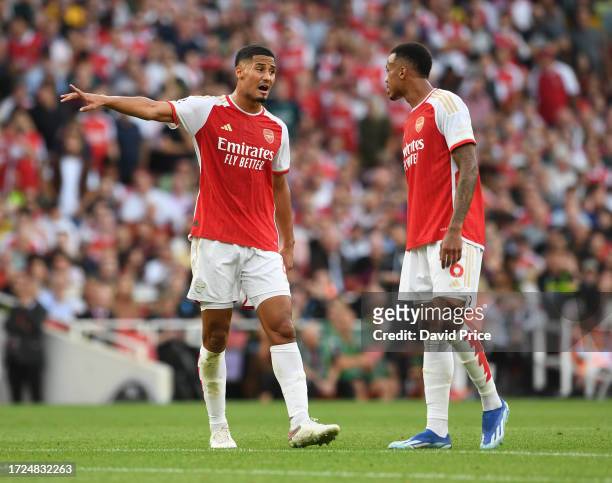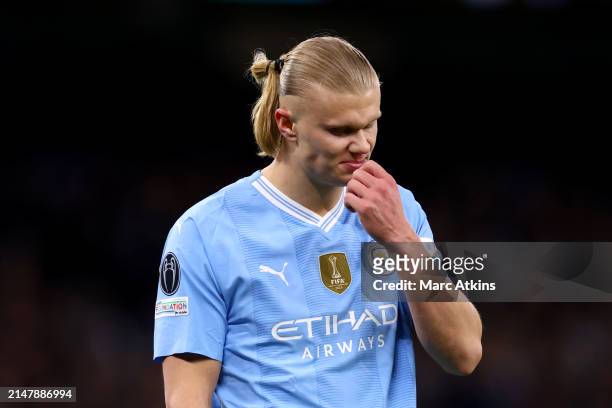At times last season, you could have been forgiven for thinking Erling Haaland was a robot. 36 goals in 35 Premier League games smashed the single season record set by Mohamed Salah (32) in 2018, the praise effusive from all quarters and an acknowledgement that we, the British footballing public, were seeing something extraordinary, almost as if an extra-terrestrial had arrived with a machine-like ability to score goals against any opposition and in any competition.
Ominously for their rivals, Manchester City had secured one of the hottest young talents in world football, a man who had once scored nine goals in one match in a youth game for his country.
After trying to replace club legend Sergio Aguero by playing a false 9, Pep Guardiola finally had a focal point in attack, someone to finish the constant stream of chances created by the rest of his formidable team. Manchester City duly swept all before them, including a maiden European crown as part a treble that emulated the famous Manchester United achievement of 1999.
It seems foolish to be sitting here a year later writing an article questioning Haaland. With 20 goals in 26 Premier League starts, the Norwegian's difficulties this season would be the envy of 95% of Premier League strikers.
And yet. This isn't the same player that burst into our game like Mike Tyson burst onto the boxing scene in the late 80s, a whirlwind of power, strength and stone cold efficiency. Haaland has notably contributed less on the bigger stages that Manchester City so routinely reach, something that was already a question mark to his name last season (He was goalless in both the FA Cup and Champions League from the semi final stage onwards).
The question is: Why? What has prompted Haaland's relative drop in performance levels compared to last season?
He's no longer unpredictable
And therefore easier to defend against, particularly against the better sides of the league. Haaland has just one goal (at home vs Liverpool) against the current top four, being largely marked out of games that he seemed to steamroller last year. A prime example of this was his relative anonymity in both matches against closest title rivals Arsenal this season, a frustrating 180 minutes in which neither him nor City as a whole could find a way to penetrate a robust Gunners defence containing William Saliba and Gabriel, two players who seem to relish battles against the Norwegian.

Upon his arrival, there were questions over whether Haaland could adapt to the intensity of the league after resounding success in the Bundesliga. Those questions have been emphatically answered, but replaced with questions regarding whether he can now adapt his game to defences that seem to have him a little more figured out.
He's missing chances he wasn't missing last season
And the stats back it up. A drop of 42 percentage points in big chances converted this season serves to illustrate the forward's travails in front of goal, although it should be said that the absences of the likes of Kevin De Bruyne through injury as well as the departure of Ilkay Gundogan to Barcelona, two players who were instrumental in opening up space and feeding passes to the Norwegian last season, have also played a huge part in this decline of output.
Elite finisher, but not so elite footballer?
Probably a matter of preference. For some, goalscoring is all that matters. For others, Haaland's overall game is found wanting when compared to greats of this and previous generations of strikers such as Sergio Aguero, Luis Suarez, Robert Lewandowski and Harry Kane.
Remember Ruud Van Nistelrooy and Pippo Inzaghi? Two elite goalscorers whose sense of timing and anticipation in the box made up for their lack of link up play and incomplete overall game. It's tempting to cast Haaland off as a penalty box poacher like them, but it just doesn't feel RIGHT.
It's clear that there is huge potential for the son of former Leeds and Manchester City midfielder Alf-Inge to develop into a truly generational talent like the ones mentioned above. After all, he is only 23 years old and has already been scoring exorbitant amounts of goals in several different leagues for five seasons.
The task now for Manchester City, Pep Guardiola and his coaching staff is how to get him to the next level and avoid a prolongation of the stagnation in his game we've witnessed this season. Stagnation is relative however, and 20 goals this season (and counting) show that when Haaland gets back to doing what he does best consistently in the bigger games and on the bigger stages, the footballing world should be on its guard.


